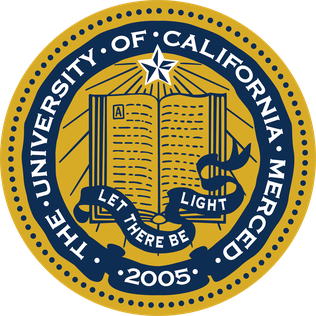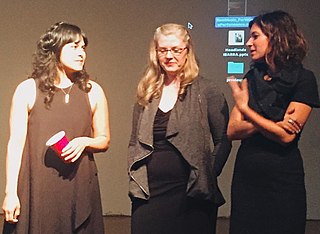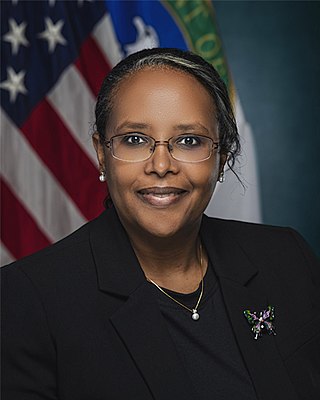Related Research Articles

Merced is a city in, and the county seat of, Merced County, California, United States, in the San Joaquin Valley. As of the 2020 census, the city had a population of 86,333, up from 78,958 in 2010. Incorporated on April 1, 1889, Merced is a charter city that operates under a council–manager government. It is named after the Merced River, which flows nearby.
An idiom is a phrase or expression that largely or exclusively carries a figurative or non-literal meaning, rather than making any literal sense. Categorized as formulaic language, an idiomatic expression's meaning is different from the literal meanings of each word inside it. Idioms occur frequently in all languages; in English alone there are an estimated twenty-five thousand idiomatic expressions. Some well known idioms in English are spill the beans, it's raining cats and dogs, and break a leg.
Cognitive linguistics is an interdisciplinary branch of linguistics, combining knowledge and research from cognitive science, cognitive psychology, neuropsychology and linguistics. Models and theoretical accounts of cognitive linguistics are considered as psychologically real, and research in cognitive linguistics aims to help understand cognition in general and is seen as a road into the human mind.

Patricia Smith Churchland is a Canadian-American analytic philosopher noted for her contributions to neurophilosophy and the philosophy of mind. She is UC President's Professor of Philosophy Emerita at the University of California, San Diego (UCSD), where she has taught since 1984. She has also held an adjunct professorship at the Salk Institute for Biological Studies since 1989. She is a member of the Board of Trustees Moscow Center for Consciousness Studies of Philosophy Department, Moscow State University. In 2015, she was elected a Fellow of the American Academy of Arts & Sciences. Educated at the University of British Columbia, the University of Pittsburgh, and Somerville College, Oxford, she taught philosophy at the University of Manitoba from 1969 to 1984 and is married to the philosopher Paul Churchland. Larissa MacFarquhar, writing for The New Yorker, observed of the philosophical couple that: "Their work is so similar that they are sometimes discussed, in journals and books, as one person."

The University of California, Merced is a public land-grant research university in Merced, California, United States. It is one of the ten campuses in the University of California (UC) system. Established in 2005, UC Merced is the newest campus within the UC system. The primary campus is located around five miles north of Merced and sits adjacent to Lake Yosemite. The main campus is around 1,026 acres in size. Large swaths of protected natural grasslands surround the university.
Eve Eliot Sweetser is a professor of linguistics at the University of California, Berkeley. She received her Ph.D. in Linguistics from UC Berkeley in 1984, and has been a member of the Berkeley faculty since that time. She has served as Director of Berkeley's undergraduate Cognitive Science Program and is currently Director of the Celtic Studies Program.
Dedre Dariel Gentner is an American cognitive and developmental psychologist. She is the Alice Gabriel Twight Professor of Psychology at Northwestern University, and a leading researcher in the study of analogical reasoning.

Lera Boroditsky is a cognitive scientist and professor in the fields of language and cognition. She is one of the main contributors to the theory of linguistic relativity. She is a Searle Scholar, a McDonnell Scholar, recipient of a National Science Foundation Career award, and an American Psychological Association Distinguished Scientist. She is Professor of Cognitive Science at the University of California, San Diego. She previously served on the faculty at Massachusetts Institute of Technology and at Stanford University.

Cognitive rhetoric refers to an approach to rhetoric, composition, and pedagogy as well as a method for language and literary studies drawing from, or contributing to, cognitive science.
Fictive motion is the metaphorical motion of an object or abstraction through space. Fictive motion has become a subject of study in psycholinguistics and cognitive linguistics. In fictive motion sentences, a motion verb applies to a subject that is not literally capable of movement in the physical world, as in the sentence, "The fence runs along the perimeter of the house." Fictive motion is so called because it is attributed to material states, objects, or abstract concepts, that cannot (sensibly) be said to move themselves through physical space. Fictive motion sentences are pervasive in English and other languages.
Raymond W. Gibbs Jr. is a former psychology professor and researcher at the University of California, Santa Cruz. His research interests are in the fields of experimental psycholinguistics and cognitive science. His work concerns a range of theoretical issues, ranging from questions about the role of embodied experience in thought and language, to looking at people's use and understanding of figurative language. Raymond Gibbs's research is especially focused on bodily experience and linguistic meaning. Much of his research is motivated by theories of meaning in philosophy, linguistics, and comparative literature.
Jeannette Littlemore is a British scholar of English and applied linguistics whose work focuses on the interpretation of figurative language, including metaphor and metonymy, as it relates to second language learning and teaching. Her research examines the ways that metaphor is misunderstood by learners of English.

Asmeret Asefaw Berhe is a soil biogeochemist and political ecologist who served as Director of the Office of Science at the US Department of Energy from 2022 to 2024. She is a Professor of Soil Biogeochemistry and the Ted and Jan Falasco Chair in Earth Sciences and Geology in the Department of Life and Environmental Sciences; University of California, Merced. Her research group works to understand how soil helps regulate the Earth's climate.

Shavone Charles, known mononymously as SHAVONE. is an American entrepreneur and musician. Shavone is the director of communications at VSCO. Forbes honored Shavone on the coveted 30 Under 30 Marketing & Advertising list.
Teamrat Afewerki Ghezzehei is an American earth scientist and the Associate Professor of Environmental Soil Physics at the University of California, Merced. He specialises in soil physics, agroecology and environmental stewardship.
Jessica Lynn Blois is an American paleoecologist.
Ashlie Martini is a tribologist and professor of mechanical engineering at University of California, Merced.
Metaphorical framing is a particular type of framing that attempts to influence decision-making by mapping characteristics of one concept in terms of another. The purpose of metaphorical framing is to convey an abstract or complex idea in easier-to-comprehend terms by mapping characteristics of an abstract or complex source onto characteristics of a simpler or concrete target. Metaphorical framing is based on George Lakoff and Mark Johnson's work on conceptual metaphors, which holds that human cognition is metaphorically conceptualized. Metaphorical framing has been used in political rhetoric to influence political decision-making.
Seana Coulson is a cognitive scientist known for her research on the neurobiology of language and studies of how meaning is constructed in human language, including experimental pragmatics, concepts, semantics, and metaphors. She is a professor in the Cognitive Science department at University of California, San Diego, where her Brain and Cognition Laboratory focuses on the cognitive neuroscience of language and reasoning.
Iraide Ibarretxe-Antuñano is a professor of linguistics at the University of Zaragoza known for her research in cognitive linguistics and psycholinguistics.
References
- ↑ "2019 Commencement Speaker: Dr. Teenie Matlock | Cognitive Science". cogsci.berkeley.edu. Retrieved 2024-09-28.
- 1 2 3 4 "Elman Prize". Cognitive Science Society. Retrieved 2024-09-28.
- ↑ Gelles, David (19 March 2022). "There's a Messaging Battle Right Now Over America's Energy Future". NY Times.
- ↑ "Teenie Matlock | School of Social Sciences, Humanities and Arts". ssha.ucmerced.edu. Retrieved 2024-09-28.
- ↑ "Previous Award Recipients | Academic Senate". senate.ucmerced.edu. Retrieved 2024-09-28.
- 1 2 3 CITRIS and the Banatao Institute (2021-03-17). 2021 Athena Award for Academic Leadership - Teenie Matlock . Retrieved 2024-09-28– via YouTube.
- 1 2 3 "Matlock Retires After Stellar UC Career | Newsroom". news.ucmerced.edu. Retrieved 2024-09-28.
- ↑ Gazette staff; 22 September 2016 (2016-09-22). "In her manner of speaking - Mariposa Gazette". Mariposa Gazette -. Retrieved 2024-09-28.
{{cite web}}: CS1 maint: numeric names: authors list (link) - ↑ "About | Teenie Matlock" . Retrieved 2024-09-28.
- ↑ Matlock, Teenie G (2001). How real is fictive motion? (Thesis). ProQuest 275901615.[ page needed ][ non-primary source needed ]
- 1 2 Matlock, Teenie; Ramscar, Michael; Boroditsky, Lera (8 July 2005). "On the Experiential Link Between Spatial and Temporal Language". Cognitive Science. 29 (4): 655–664. doi:10.1207/s15516709cog0000_17. PMID 21702788.[ non-primary source needed ]
- 1 2 "CIS History | Cognitive & Information Sciences". cogsci.ucmerced.edu. Retrieved 2024-09-28.
- ↑ "NSF Award Search: Award # 0617714 - Conference on The Future of Cognitive Science, 2007". www.nsf.gov. Retrieved 2024-10-06.
- ↑ "Teenie Matlock". The Climate Center. Retrieved 2024-10-04.
- ↑ "Metaphor and Symbol: About this journal".
- ↑ "Announcing Teenie Matlock as special adviser to the chancellor for Indigenous matters". UC Santa Cruz News. Retrieved 2024-09-28.
- ↑ Kirkpatrick, Madison; 29 June 2023 (2023-06-29). "Gateway project draws big support - Mariposa Gazette". Mariposa Gazette -. Retrieved 2024-09-28.
{{cite web}}: CS1 maint: numeric names: authors list (link) - ↑ GSR G Street Revolution (2020-06-18). G Street Revolution - Carousel (2017) . Retrieved 2024-10-20– via YouTube.
- ↑ Little, Greg; 30 May 2024 (2024-05-30). "America's war dead honored during ceremony at cemetery - Mariposa Gazette". Mariposa Gazette -. Retrieved 2024-09-28.
{{cite web}}: CS1 maint: numeric names: authors list (link) - ↑ Colston, Herbert L.; Matlock, Teenie; Steen, Gerard J., eds. (2022). Dynamism in Metaphor and Beyond. Metaphor in Language, Cognition, and Communication. Vol. 9. doi:10.1075/milcc.9. ISBN 978-90-272-1141-5.[ page needed ][ non-primary source needed ]
- ↑ Matlock, Teenie (6 February 2017). "Framing Political Messages with Grammar and Metaphor". American Scientist.[ non-primary source needed ]
- ↑ Winter, David G. (February 2010). "Circulating Metaphors of Sexuality, Aggression, and Power: Otto Rank's Analysis of 'Conquering Cities and "Conquering" Women'". Political Psychology. 31 (1): 1–5. doi:10.1111/j.1467-9221.2009.00741_1.x.
- ↑ Flusberg, Stephen J.; Matlock, Teenie; Thibodeau, Paul H. (2 November 2017). "Metaphors for the War (or Race) against Climate Change". Environmental Communication. 11 (6): 769–783. Bibcode:2017Ecomm..11..769F. doi:10.1080/17524032.2017.1289111.[ non-primary source needed ]